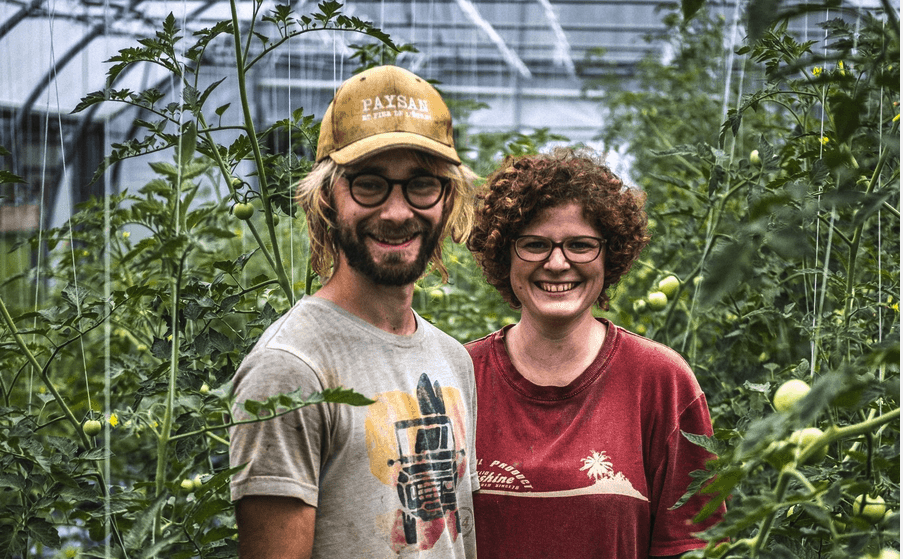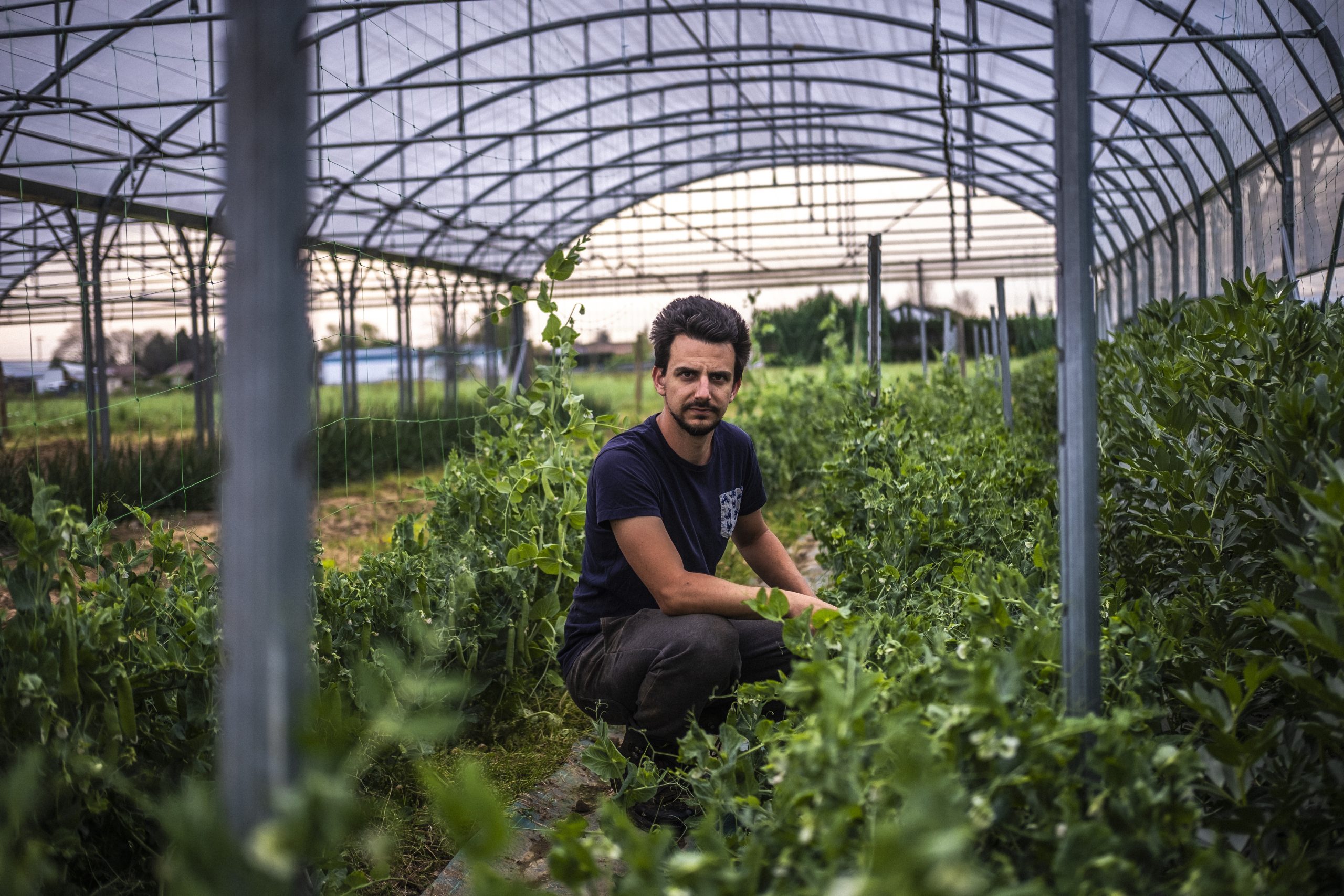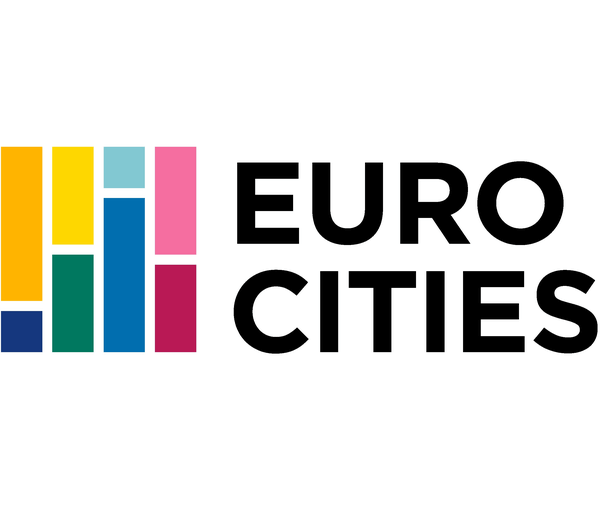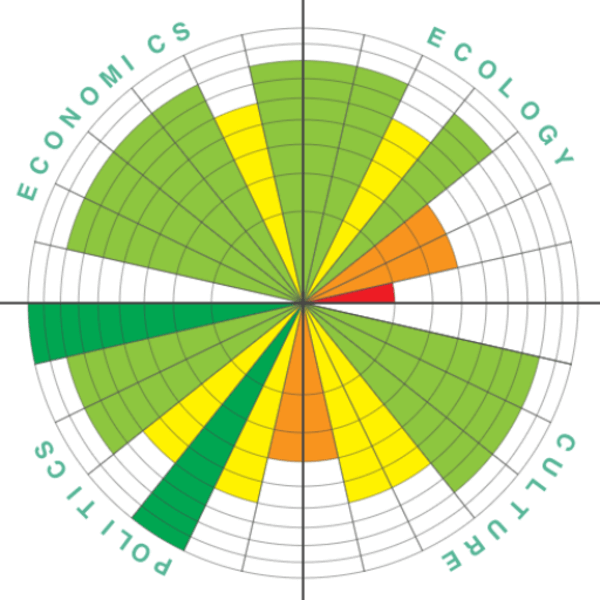 - © Adrien Basse-Cathalinat, Communauté d'Agglomération Pau Béarn Pyrénées
- © Adrien Basse-Cathalinat, Communauté d'Agglomération Pau Béarn Pyrénées Green Belt Farmer Lois - © Adrien Basse-Cathalinat, Communauté d'Agglomération Pau Béarn Pyrénées
Green Belt Farmer Lois - © Adrien Basse-Cathalinat, Communauté d'Agglomération Pau Béarn Pyrénées
City
Pau
Main actors
City Government, Community / Citizen Group
Project area
Whole City/Administrative Region
Duration
Ongoing since 2020
The Green Belt Pays de Béarn is a co-operative enterprise that was formed by the Metropolitan Area of Pau, the Chamber of Agriculture of the Pyrénées Atlantiques, and La Ceinture Verte Group in early 2020. It has an ambitious goal to settle 100 farmers on small surfaces (around 2 hectares) within seven years and significantly increase the number of vegetables, fruit, milk and meat produced and consumed locally. This initiative strives to invigorate the local economy, improve food security, and minimize the area's environmental impact.
Originally published by Eurocities: LINK
Eurocities Awards
This project was awarded the 'Eurocities Awards' in 2024 in the following category: Sustainable Food Systems: empowering people.
The Green Belt Pays de Béarn is an open initiative launched in 2019 by the Metropolitan Area of Pau, the Chamber of Agriculture of the Pyrénées Atlantiques and La Ceinture Verte Group. Its aim is to accelerate the transition towards short food circuits throughout the territory. The City Council of Pau Béarn Pyrénées voted in favour of participating in the cooperative.
This ambitious project faces serious challenges as both production and consumption are not currently oriented towards short circuits. Any initiative attempting to address only one side of the problem will fall short. For instance, raising production while demand is weak, or increasing demand while local production cannot keep up would be ineffective.
Objective:
The Green Belt is a non-profit ad-hoc vehicle aimed at tackling challenges in an integrated way. It is open to all participants, including professionals (such as bio experts, representatives from the chamber of agriculture, city officials, agriculture schools, distributors and food processors) and individuals (including investors, workshop facilitators, volunteers, and children’s program coordinators.
The project started in Pau in January 2020 with initial funding of 500.000 € (split between public and private sources). It aims to settle at least 100 farmers on small plots (2 hectares) within 7 years and significantly increase the number of vegetables, fruits, milk and meat produced and consumed through short circuits.
The cooperative
- provides fully equipped farms for independent producers within the metropolitan area, facilitating the entry of new farmers by helping them avoid heavy investments
- offers technical assistance and a supportive network to increase productivity in small agricultural holdings (including a network of mentors, tools and best practices)
- provides access to sales platforms dedicated to wholesale delivery (central kitchen, supermarkets), mid-scale (restaurants) and retail (produce baskets, online solutions, famers markets). Committed to short food circuits, these platforms make intensive use of technology in order to align with our collaborative and sustainability values: electrical vehicles, internet marketplace and distributed production planning,
- promotes a local brand "La Ceinture Verte Pays de Béarn" with a collaborative approach fostering community engagement: cooking workshops "eat organic and cheaper", events, and collaborative farming activities.
- invests in activities that could leverage the cultural and economic impact of a local food system
The non-profit co-operative has no fixed costs or requirement to generate revenues and membership fees are reinvested into new farms.
Each farm costs 200.000 € to set up – half of this is subsidised through European Common Agricultural Policy funding, and half is provided through a loan which the farmers pay back over time, with the repayments starting low and scaling up as the farms become established.
New farmers are coming through routes such as the local agricultural college, farmers’ groups, the Chamber of Agriculture, and career services that connect newly qualified people with work opportunities.
Future Focus Areas
- Expanding local farming activities: fruits, honey, cereals and bread production, meat and dairy products
- Improving technical practices: Implementing new tools (Al, robots, solar production/crop protections). Adopting new work methods (introducing new species, irrigation optimisation, improving planning)
- Enhancing distribution: Developing new sales channels (e.g.: automatic lockers) to capture new customers who usually shop at the supermarket for instance. Reorienting our distribution system towards local products, moving away from global food markets and traditional supermarket models.
The cooperative has raised 0.5M€ in capital.
Each farm requires 100,000€ in grants (European CAP) and 100,000€ in bank loans, repaid through farmers' contributions.
The budget is growing as more farms are built, with total assets currently at 2M€.
Key Financial Notes:
- The cooperative has no fixed costs, making it a low-risk vehicle. The CEO, an employee of the Ceinture Verte Group, invoices the cooperative only when new farms are created
- The risk of insufficient farm creation to cover CEO wages is shared among several cooperatives, as the CEO often manages activities in multiple regions (e.g., Limoges+Poitiers, Le Havre+Caen+Rouen)
- The SCIC's budget does not rely on any city grants.
Cooperative Dynamics:
The cooperative structure is a strong asset, generating support in various areas:
Funding:
- Over 250,000€ of capital raised from citizens
- Cities provide strong communication channels (e.g., local newspapers) to promote the initiative
- Easy investment process through a dedicated webpage
- Despite low profit expectations, people invest (1,000€ to 50€) due to the project's meaningfulness and a 25% state tax reduction
Technical Support:
- Partners (agriculture chamber, local farmers) provide peer coaching to Ceinture Verte farmers.
- Monthly on-farm meetings address issues in plantations, tools, techniques, sales, and morale.
Farmer Recruitment and Training:
- Candidates sourced from Lycée Agricole, CIVAM, ADEAR, chamber of agriculture, and the "SAS Graines" farming test camp
- Most candidates are career-switchers requiring initial training (6-month theoretical course for Brevet Professionnel Exploitant Agricole) and at least one year of farm experience
Awareness, Communication, and Sales:
- Cities actively promote and facilitate access to local markets (outdoor markets, public outlet advertising, collective catering gross market)
- Citizens promote local purchasing through dedicated associations (e.g., AMAP, offering prepaid weekly baskets).
This structure ensures a comprehensive approach to developing and sustaining the local agricultural ecosystem.
As of December 2023, 8 farms (about 20 FTE) have been established with all farmers achieving economic sustainability- a great achievement and the main goal of the cooperative.
This success is largely due to the involvement of all stakeholders in the cooperative. Suitable land is scarce and without strong support of the chamber of agriculture, unions, banks and municipalities, accessing it and invest in new agricultural infrastructure would be extremely challenging.
Key achievements:
- 8 active farms.
- 100% of farms providing farmer income above the minimum wage.
- 200-240 tons of vegetables distributed locally each year.
- 2M€ of public funds raised (France 2030) to foster innovation in the local food system
Access to suitable land with water available has proven challenging and conflict-prone in a very conservative and closed agricultural system, managed solely by the agriculture chamber. Land allocation is mostly based on economic opportunities, largely driven by non-local markets (such as corn production).
The interests of local communities are now increasingly recognised through this cooperative vehicle: Regular discussions between the associates of the SCIC Ceinture Verte Pays de Béarn have led to an updated shared vision for the local food system, including the need to address local food markets.
So far, the farmers have not faced sales difficulties, as they primarily serve the high-end market. Our current challenge is to expand into the mass market production, by increasing the production volumes and reducing the prices to reach lower customer segments. This shift will likely cause the average Ceinture Verte farm size to increase, creating new opportunities for our most successful farmers.
Building on the City of Pau’s strong political ambition to re-localise food production, the cooperative scheme has successfully brought together all the required stakeholders, uniting them under a shared goal.
We have demonstrated that we can scale up this system, both locally and nationally. This scalability is a crucial question for initiatives of this kind that often struggle to replicate their model and achieve a significant impact (as a reminder: 20% of local vegetables in Pau will require 80 Ceinture Verte farms).
Pau’s Green Belt initiative was the first, but it is now part of a growing network of 10 cooperatives in France, including in Paris and Rouen, which are overseen by La Ceinture Verte Groupe.
On Map
The Map will be displayed after accepting cookie policy

